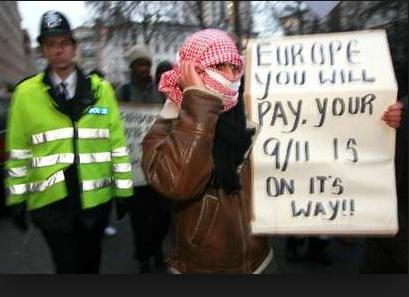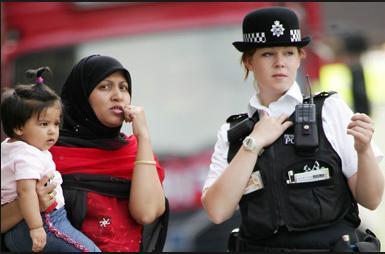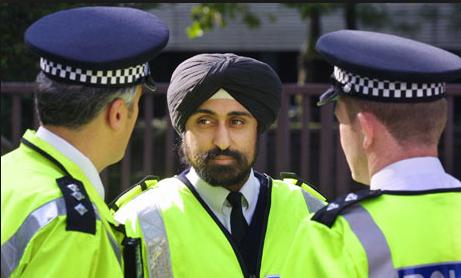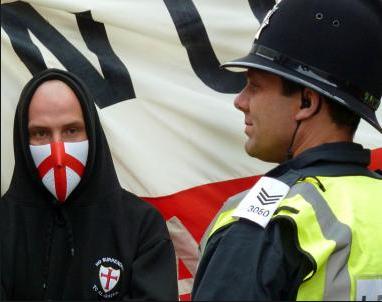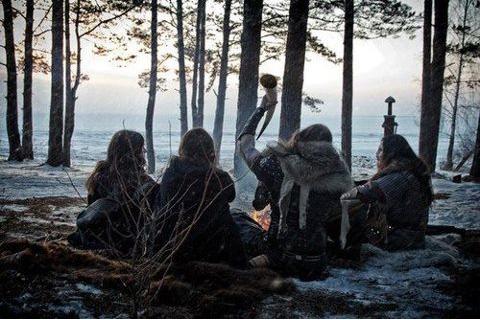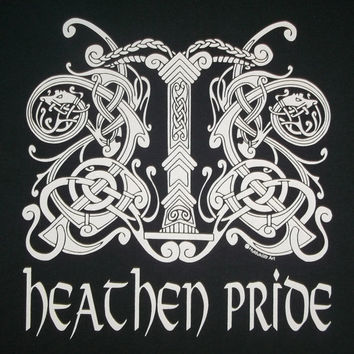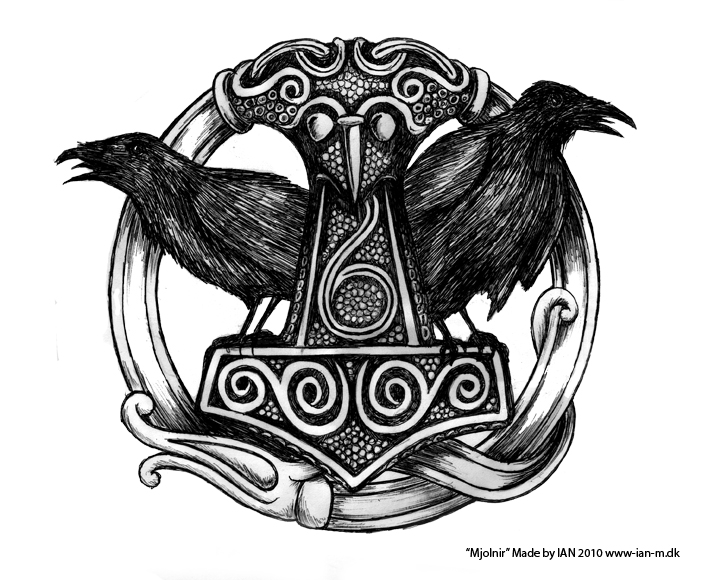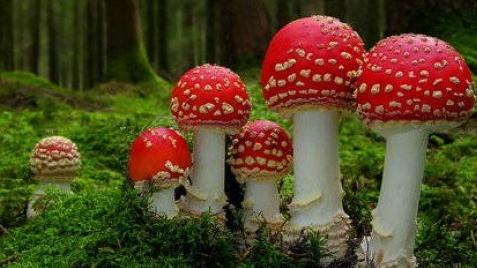Heathenry resurgence in the wake of dodgy institutional religions
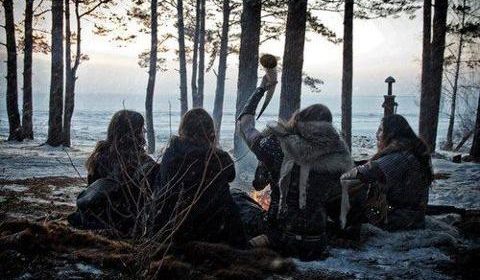
In the wake of spreading barbaric evil islamism, dodgy evil pedophile priests infecting Christian denominations and growing social deviance; ordinary folk are finding salvation in traditional, honest and natural spirituality.
Heathenry is an ancient spirituality particular to the Anglo-Celtic, Germanic and Nordic White races connecting humans with the natural world of North Western Europe. It does not worship manmade institutional Judaism, Christianity, or Islam. Heathenry is a pagan religion that seeks to revive the religious beliefs and practices of the ancient Celts.
Many people of Anglo-Celtic ancestry do not realize that the original religion of their Ancestors was not Christianity. If one goes back a 1000 years or more, prior to the conversions to Christianity in the British Isles and across Europe, one’s ancestors had their own native Folk Religion that was richer and more meaningful in their lives.
Our People honoured their own Gods and Goddesses, their ancestors, and the spirits in nature. These original Heathens were the pre-Christian Northern European peoples who lived in the lands around what is now called the North Sea. These included the people of Anglo-Saxon England, Scandinavia, and Germany.
Some of these heathens were convinced to convert to Christianity by missionaries. Some were coerced to convert based on threats of physical violence. Others converted due to political or economic pressures brought on them by Christians. And some of our ancestors were killed, because they refused to give up their Ways.
Nothing was more important to our Ancestors than their kin. The smallest social unit in our mainstream culture is the individual, but among our ancestors the smallest social unit was the family. An individual on this own, had no one to speak up for him, no one to look out for him, and no one to avenge him should be done wrong. An individual was nothing.
These days, with governments imposing relentless globalism, immigration and multicultism on local native people, many feel marginalised and alienated in our own ancestral land. The institutional religions are embracing the global breakdown of borders. We witness our First World society breaking down from the influx of the Third World barbarians – family breakdowns, increased violence, society rife with crime, violent crime, perversions of every sort, horrific crimes again our vulnerable – our children, our elderly, and our womenfolk.
We live in what is termed now a “multi-cultural” society, where each section of that society has its own “community” (within the “World Community”); yet us native Anglo-Celts are denied any clout whatsoever within this “multi-cultural” globalism. Anyone who attempts to get a say, and stand up for the traditional White society and values, is deemed to be a racist from the vocal hateful Left.
The idea that a “European State” can be forced upon the peoples of Europe involves the destruction of the existing Nations of Europe – including the English Nation. As this European State progresses it has become clear that the aim is to allow the existence of the smaller nations of Britain – Scotland, Wales, Ireland (in the latter case it would involve the destruction of Ulster which is a clear entity in itself which differs in national identity to that of Eire) – but to break the English nation into “regions” which would then become part of a European State.
We can see now where Scottish Nationalism, Irish Nationalism, and Welsh Nationalism have sprung from, a secret plan to break up the British Union and to create a number of small “regions” in these islands which would be part of a European State.
Ordinary folk are rejecting the globalist agenda and returning to their traditional native roots for spiritual guidance and to rekindle their sense of native identity.
Heathenry is pre-Christian belief systems adhered to by the Celtic peoples of Iron Age and Early Medieval Britain and Europe. Their past belief systems are reconstructed according to oral traditions, old literature, folkloric evidence and ethnographic sources. Members of the Heathen community often assemble in small groups, usually known as kindreds or hearths, to perform their rites in specially constructed buildings or outdoors. Heathen ethical systems place great emphasis on honor, personal integrity, and loyalty, while beliefs about an afterlife are varied and rarely emphasized.
The primary division within the Heathen movement surrounds the issue of race. Many groups eschew racialist ideas, adopting a universalist perspective which holds that the religion is open to all, irrespective of ethnic or racial identity. Conversely, others adopt a racialist attitude – termed “folkish” within the community – by viewing Heathenry as a religion with intrinsic links to a Nordic race that should be reserved explicitly for white people of Northern European descent. Some folkish Heathens further combine the religion with explicitly racist and white supremacist perspectives.
Although the term “Heathenry” is used widely to describe the religion as a whole, many groups prefer different forms of designation, influenced by their regional focus and their attitude to race. While a number of groups venerating Scandinavian deities use Ásatrú or Forn Sed, those focusing on Anglo-Saxon deities use Theodism, and those adopting folkish perspectives tend to favor the terms Odinism or Wotanism.
Heathen communities are increasingly flourishing in various parts of Europe, the Americas, and Australasia.
In Modern Heathenry, there is a strong focus on healthy families. Nearly every local group encourages the whole family to be involved. Loyalty to one’s family is seen as being of primary importance. The most commonly used term for local Heathen groups is “kindred,” and most kindreds are organized in a structure similar to an extended family.
There are solitary Heathens. Some are solitary by choice, while others live in areas where they have not yet found other Heathens with which to associate or gather. Heathens the community aspects of Heathenry are central to the practice of their Faith.
Associating with other Heathens can accelerate your learning, motivate you to greater
accomplishments, and allows one to fully live and experience the cultural values that are embodied in the Ways of our Ancestors. For instance, how better to practice and share Frith in your life, than to be surrounded by other people who understand the concept?
This community orientated nature of Heathenry also fills a gap in an otherwise individualistic and fairly selfish mainstream culture. In a world where neighbours don’t know each other, families fall apart on a regular basis, and it often feels like everyone is out for themselves…Heathenry is a place where you can get to know good people, and share friendship, loyalty, and mutual support with them.
Amazing things can be accomplished when people of worth work collectively to accomplish important goals.
Modern Heathen groups around the world are reviving these old practices and call their religion by various names including Folkish Wodenism, Asatru, The Northern Tradition, Odinism, Forn Sed, Germanic Pagan Reconstructionism, Wicca or, simply, Heathenry. It be an umbrella term of sorts.
In Iceland, which did not convert to Christianity until the 11th Century, Heathenry has once again become an official (nationally recognized) religion.
In England, a Heathen is an individual who believes in the most ancient polytheistic religion of the English; the primary god of the English pantheon is Woden – the All-Father. This religion is thus named Wodenism, or in its version promoted by Woden’s Folk, the Woden Folk-Religion or Folkish Wodenism. It is based upon the most ancient Solar Religion of the Northern Folk, and incorporating a form of Primordial Tradition which goes back to the ancient northern island of Scandi/Thule/Atalland – an ancient island in the far north which, according to legend, sank at the end of a Golden Age. The latter we term the Polar Mythos which is the most ancient tradition of the Northlands.
Heathens work to build healthy relationships with gods and goddesses, ancestors, spirits of the land, and others in their communities, both through holy rites and through their day to day actions and deeds. There is no central authority in Modern Heathenry to establish or enforce dogma or standarized beliefs. Most Modern Heathens see this as a good thing. Over time, each Heathen family or local group tends to develop its own individual practices and beliefs. Those of us that see this as a good thing, tend to refer to this as the “tribal” nature of Asatru.
Asatru is an old Norse word which means Troth (loyalty) to the gods.
This tribal approach requires Heathens to look to their similarities with Heathens from other areas and other groups, rather than engaging in endless debates, fighting, and condemnation over the smallest of differences.
There are various efforts to move Modern Heathenry forward, including the establishment and growth of local groups, regional gatherings and alliances, national organizations, and plenty of on-line information sharing and networking.
Among Heathens one will often hear discussions about Heathenry not being “just a religion.” This comes from the fact that while Heathenry does involve certain religious beliefs and activities, it also involves many cultural elements and values, a significant change in world-view from the mainstream, and for those that fully involve themselves, Heathenry is a way-of-life, and it enriches and informs almost every area of one’s life.
Heathenry is not a hobby. It is not role-playing. It is not a fantasy. It is not something one only does “on-line.” It is not a once-a-week or only-on-the-holidays activity. As one delves fully into Heathenry, it becomes evident that our mainstream culture within which most of us were raised has been heavily influenced and shaped by centuries of Christianity and the foreign cultural values that came along with that conversion.
Christianity stole and copied many pagan traditions anyway, making it fabricated.
A return to the Ways of our Ancestors involves more than just honoring our Gods, our Ancestors, and the spirits of the land. To truly return, one must learn the cultural values of our Ancestors and begin to see the world, our lives, and our families as our Ancestors saw them. One cannot overstate how difficult it can be to shed the cultural values of the society within which you were raised and to internalize the cultural values of a pre-Christian culture. It is an on-going spiritual enriching experience that takes years of reading, consideration, and deeds; an on-going process that never truly ends.
Learn More:
http://www.paganfed.org/index.php/paganism/heathenry
http://www.wandererkindred.org/links.html
http://wiccanone.org.uk/asatru.html
http://heathengods.com/library/index.htm
http://www.englishmovement.org.uk/englishmovement/index.html
http://www.odinistfellowship.co.uk/
http://pagan.wikia.com/wiki/Traditional_Heathen_Festivals_(UK)

